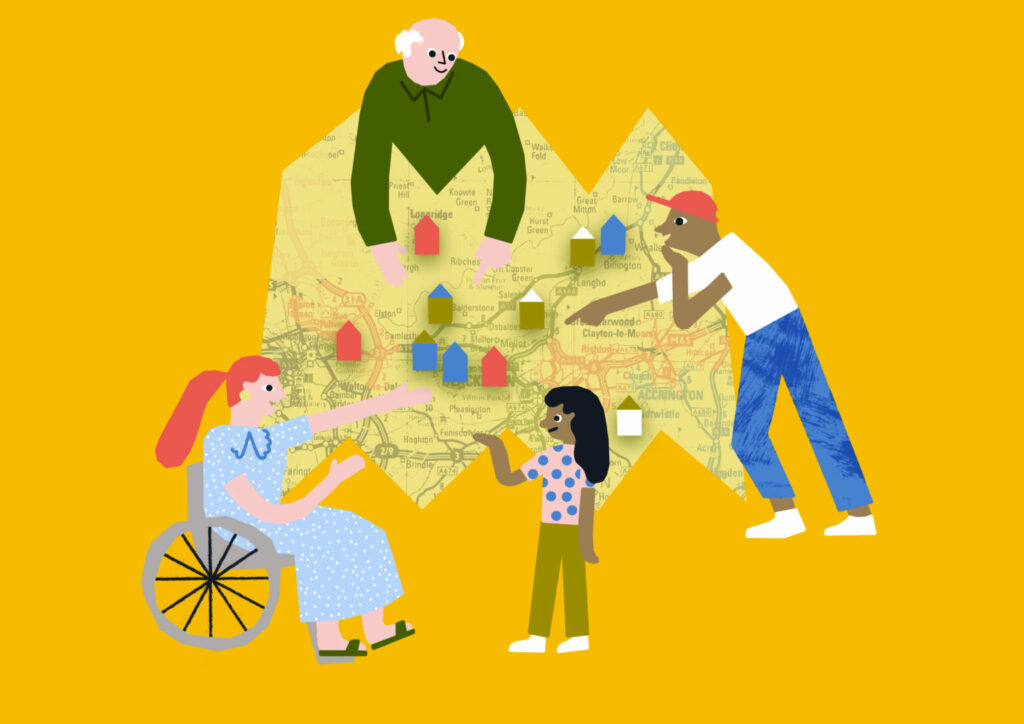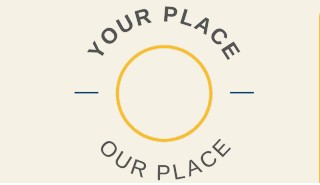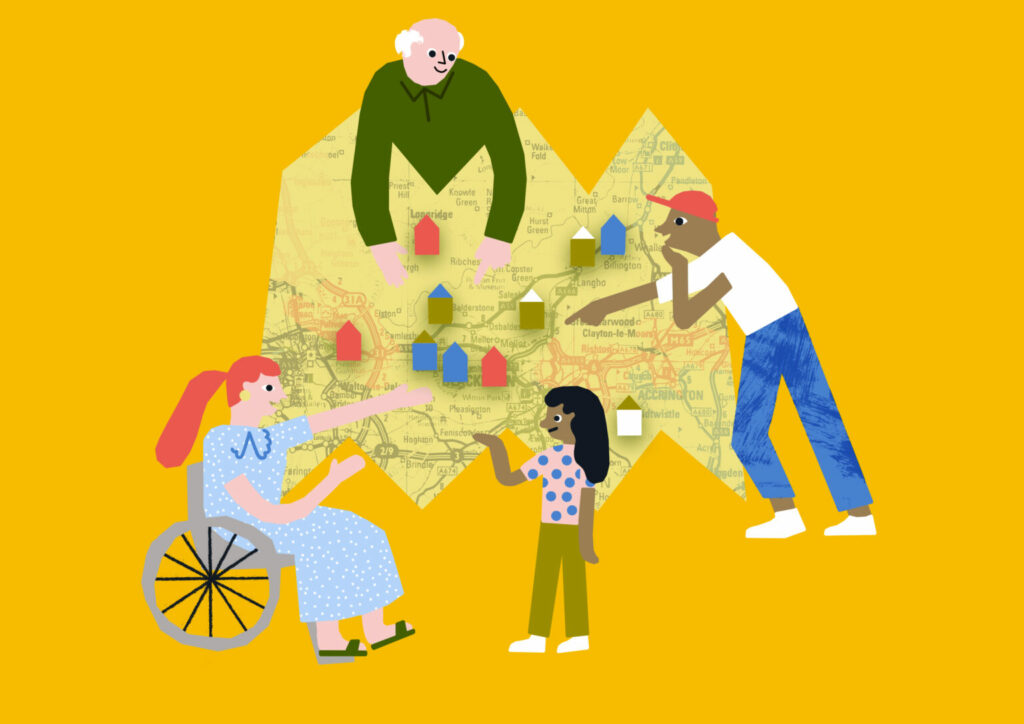Britain’s urban planning system has its roots in the postwar period, designed for rapid regeneration of bombed out towns and cities rather than democratic development. As the government rethinks the future of planning, Reading’s Professor Flora Samuel is leading a major research project to find the best ways to consult the public on planning decisions so that everyone’s voice gets a chance to be heard.

Seemingly everywhere you look across the UK, developers flags are flying and housing developments are springing up to meet the pressing demand for new homes. But Professor of Architecture Flora Samuel says the current planning system isn’t working very well and is leaving communities resentful and unlikely to want developments in their back yard.
“Currently it is very difficult for communities to have a say in the planning of their areas because the processes can be convoluted, confusing, disempowering and altogether difficult. At the same time local authorities and developers find consultation expensive, time consuming, ineffective and often confrontational,” she says.
“Our planning system has its origins in post-world war II reconstruction and was designed for building fast with minimal input from the community. We now live in a very different world in which digital technologies should help to make consultation easier and more democratic.
The government is currently rethinking the future of planning and it is important that better consultation with communities is part of it. We are looking to develop a digital and face to face format for planning consultation that is simple and effective, keeps people informed and gives them power.”
People-powered mapping
A review of the literature by the team has highlighted the urgent need for a code of conduct for community participation in planning decisions. Spurred by this, Professor Samuel is leading a major, nationwide research project for the Quality of Life Foundation charity known as the community consultation for quality of life (CCQOL), which is funded by the UKRI Arts and Humanities Research Council. Its aim is to find out how best to carry out inclusive community consultation, with the aim of developing best practice guidelines.
 The research project builds on the University of Reading’s Mapping Eco Social Assets project, and it is asking the local population to help create maps of local assets, both online and in community spaces – such as in Reading’s new ‘urban room’ community space, Your Place, Our Place, which is in the Broad Street Mall during March 2022. The project team hope that creating these maps will prove to be a good way to involve the local community in the co-development of local knowledge, which can help make arguments for future improvements and development.
The research project builds on the University of Reading’s Mapping Eco Social Assets project, and it is asking the local population to help create maps of local assets, both online and in community spaces – such as in Reading’s new ‘urban room’ community space, Your Place, Our Place, which is in the Broad Street Mall during March 2022. The project team hope that creating these maps will prove to be a good way to involve the local community in the co-development of local knowledge, which can help make arguments for future improvements and development.
“People are more likely to be accepting of change when they are consulted with properly,” explains Professor Samuel. “They are likely to take more responsibility for their area. Good consultation can contribute to community building and a sense of identity as well as wellbeing.”
Urban spaces that work for people

The project uses the charity’s Quality of Life Framework – themed around control, health, appreciation of nature, wonder, movement and sense of belonging – to pinpoint the aspects of an area that are important to people’s health and wellbeing.
“The built environment can affect our quality of life in many ways,” says Flora. “We’ve seen this during the pandemic. The Quality of Life Framework is a way of capturing them. There are obvious things like health, how much exercise we take, our exposure to nature, the way we connect with one another and less obvious things like the way the built environment can encourage us to connect with our sense of purpose. Importantly having a sense of power over our environment is good for wellbeing.”
A national focus
Besides Reading’s ‘Your Place, Our Place’ there are CCQOL research projects running in Belfast, Cardiff and Edinburgh. Each project is led by a co-investigator that aims to carry out research on theme developed in response to its local community and context, helping to develop community mapping methodologies through their research.
For example, Edinburgh’s project focuses on the concept of the ’20-minute neighbourhood’ – creating neighbourhoods in which most of people’s daily needs can be met within a short walk or cycle. This can bring a range of benefits including people being more active, less traffic and air pollution, thriving local businesses and more social contact.
Edinburgh is a city of distinct communities that don’t always benefit from the ‘gravitational pull’ of its historic city centre. The CCQOL project will work in parts of Edinburgh that will benefit from a clear vision of what a 20-minute neighbourhood means, not only for mobility but also for equity in access to services and facilities as well as building a sense of security and of place.

Shaping policy and driving up standards
So what will the project ultimately aim to achieve?
“Reports will be written on best practice in planning in the context of each of the four nations which will hopefully influence policy and local authority work in this area,” says Professor Samuel.
“We will publish a code of conduct and toolkit for engagement which we hope will drive up standards. The digital quality of life platform will become a service used by the Quality of Life Foundation to map quality of life with people.
This ‘active’ data will be combined with ‘passive’ data maps currently being generated on a related research project, the Better Places Social Value Toolkit which is being developed with the global design company Stantec. Passive data includes things like indices of deprivation and the information coming through the census. Put together they should make for powerful social value maps which can be used for decision making.”
Better future planning
Professor Samuel hopes that the project will have a legacy for planning in the UK: “We hope to change the course of planning to include better engagement practices and social value mapping. We hope that one day the UK will be covered by a network of quality of life maps that can be used to make better decisions about planning, planning that fits with what people want,” she says.
Have your say in the Reading consultation
Professor Flora Samuel’s staff profile

